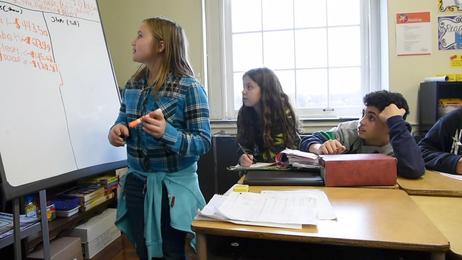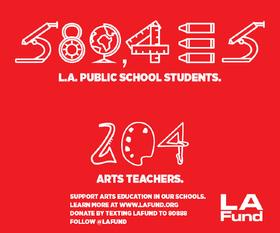Since Mayor Michael Bloomberg took office, the city of New York has focused on improving dismal high school graduation rates. To that end, Mayor Bloomberg has boasted that the city has seen huge success. However, more recent numbers indicate that graduating students from high school is not enough for the youth of New York City. Now, college readiness has become a concern, and the numbers there are not nearly as encouraging.
Dismal Numbers Indicate Preparation is Lacking
According to a recent report in the , only one in four New York City students is ready for the rigors of a college curriculum after graduating from high school. Minority students see even lower figures in college readiness after high school. The recent data has many educators and legislators throughout the city up in arms as they realize that graduation rates may not be enough to ensure students leaving New York schools are ready for the job market of the 21st century.
ŌĆ£The reality today is that a high school degree is not enough for the average student to compete,ŌĆØ City Councilman Ydanis Rodriguez told NY1.
Additional data collected by city officials showed the same distressing results ŌĆō 75 percent of New York high school graduates did not have sufficient Regents and SAT scores to avoid remedial classes in their first year of college. Remedial classes often have a negative impact on college completion rates, since students must use valuable time and tuition money to take courses that will not apply to their major field of study or even towards earning their degree.
ŌĆ£The sad fact is that the administration that has never stopped congratulating itself for ending ŌĆśsocial promotionŌĆÖ has created a new program ŌĆō ŌĆśsocial graduationŌĆÖ,ŌĆØ Michael Mulgrew, president of the cityŌĆÖs teachersŌĆÖ union, told the New York Post. ŌĆ£Higher graduation rates mean little when the students arenŌĆÖt ready for college work.ŌĆØ
Mulgrew said that despite the cityŌĆÖs pledge to end the practice of ŌĆśsocial promotionŌĆÖ, students are still getting passed through grades without the skills necessary to succeed at the next level.
ŌĆ£By the time students get to high school, they are grade levels behind, especially in literacy,ŌĆØ Mulgrew said to the New York Times. ŌĆ£We now leave back almost no one behind.ŌĆØ
This video discusses the issue of college readiness.
The Problem with Minorities
The data also suggests that the city has not made many strides in minimizing the disparities between minority students. According to a report at , only 13 percent of blacks and Hispanics are ready for college after graduating high school, versus 50 percent of the white students that graduate from the same schools. The Urban Youth Initiative has called for new policies to close the racial gap, including hiring more college counselors to help students prepare for higher education while still in high school.
ŌĆ£ItŌĆÖs not enough to say, ŌĆśyou need to go to collegeŌĆÖ,ŌĆØ Councilman Rodriquez told The Epoch Times. ŌĆ£If we really want young New Yorkers to have the opportunity to get these jobs, we have to make sure that our schools not only prepare them to enroll in college but to actually prepare them to succeed.ŌĆØ
Possible Reasons for the Statistics
One possible reason the statistics look so grim has to do with changes to the minimum requirements used to estimate a studentŌĆÖs success at the post-secondary level. In the past, a score of 65 on the Regents examination was thought to be enough to demonstrate college readiness. However, that score was recently bumped up to a 75 on the English Regents and an 80 on the math examination, as educators realized that students on the lower end of the scale often required remedial coursework before they were fully prepared for higher education.
Educators also cite the fact that in previous years, the focus has been primarily on improving high school graduation rates, rather than looking at college readiness.
ŌĆ£ItŌĆÖs a relatively new goal to talk about college readiness,ŌĆØ Shael Polakow-Suransky, Chief Academic Officer for the Department of Education, told the New York Post. ŌĆ£This is not something we were talking about in the city five years ago.ŌĆØ
However, Polakow-Suransky added that with the new focus on college readiness, and the introduction of higher learning standards, the city could double its college readiness statistics in just three years.
ŌĆ£Everyone is looking at a more rigorous standard they have not looked at before,ŌĆØ Polakow-Suransky told the New York Times. He said that the city schools have been very successful to a point ŌĆō getting the majority of students to the 65-point range on Regents. The next step will be to move that average score to the 75 or 80 range, ensuring students are better prepared for the rigors of a college curriculum.
This video from Stanford CEPA offers a college readiness indicator.
Improvements have been Coming
Despite the concern over the latest dismal numbers, New York educators are quick to point out that improvements have been seen in recent years. In 2002, just 16,000 city graduates were attending City University of New York Colleges. That number ballooned to nearly 25,000 in 2010. In addition, graduation rates throughout the city increased to 65 percent by 2010, the highest rate in recent history.
The number of students requiring remedial coursework in college has also dropped, according to recent numbers reported in the New York Post. Between 2002 and 2010, the number of students needing remedial classes during the first semester of college went down from 15 percent to just 11 percent. While many will say these numbers are moving in the right direction, others will agree that there is still plenty of work to be done to ensure New York students are enjoying every possible educational opportunity available to them.
Questions? Contact us on Facebook. @publicschoolreview















